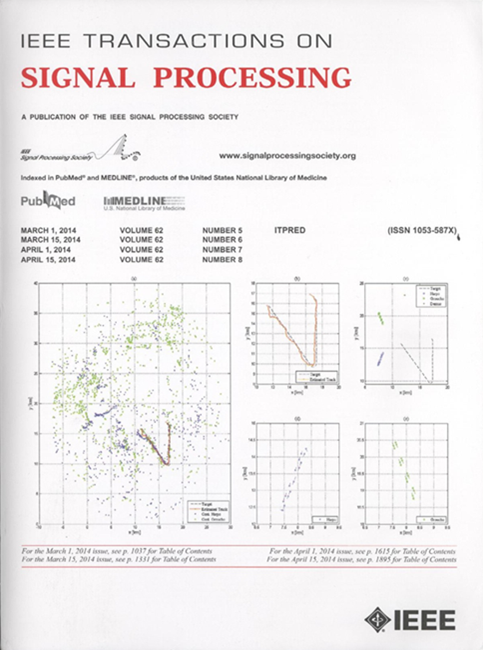Ensemble Kalman Filtering Meets Gaussian Process SSM for Non-Mean-Field and Online Inference
IF 4.6
2区 工程技术
Q1 ENGINEERING, ELECTRICAL & ELECTRONIC
引用次数: 0
Abstract
The Gaussian process state-space models (GPSSMs) represent a versatile class of data-driven nonlinear dynamical system models. However, the presence of numerous latent variables in GPSSM incurs unresolved issues for existing variational inference approaches, particularly under the more realistic non-mean-field (NMF) assumption, including extensive training effort, compromised inference accuracy, and infeasibility for online applications, among others. In this paper, we tackle these challenges by incorporating the ensemble Kalman filter (EnKF), a well-established model-based filtering technique, into the NMF variational inference framework to approximate the posterior distribution of the latent states. This novel marriage between EnKF and GPSSM not only eliminates the need for extensive parameterization in learning variational distributions, but also enables an interpretable, closed-form approximation of the evidence lower bound (ELBO). Moreover, owing to the streamlined parameterization via the EnKF, the new GPSSM model can be easily accommodated in online learning applications. We demonstrate that the resulting EnKF-aided online algorithm embodies a principled objective function by ensuring data-fitting accuracy while incorporating model regularizations to mitigate overfitting. We also provide detailed analysis and fresh insights for the proposed algorithms. Comprehensive evaluation across diverse real and synthetic datasets corroborates the superior learning and inference performance of our EnKF-aided variational inference algorithms compared to existing methods.集合卡尔曼滤波与高斯过程 SSM 的非均值场和在线推理
高斯过程状态空间模型(GPSSMs)是数据驱动的非线性动力系统模型的一个通用类别。然而,GPSSM 中存在大量潜变量,这给现有的变分推理方法带来了一些尚未解决的问题,尤其是在更现实的非均值场(NMF)假设下,包括大量的训练工作、推理精度受到影响以及在线应用的不可行性等等。在本文中,我们将集合卡尔曼滤波器(EnKF)这一成熟的基于模型的滤波技术融入到 NMF 变分推理框架中,以近似潜在状态的后验分布,从而应对这些挑战。EnKF 和 GPSSM 之间的这种新颖结合不仅消除了学习变分分布时对大量参数化的需求,而且还实现了证据下限(ELBO)的可解释闭式近似。此外,由于通过 EnKF 简化了参数化,新的 GPSSM 模型可以轻松地应用于在线学习。我们证明,由此产生的 EnKF 辅助在线算法通过确保数据拟合的准确性,同时结合模型正则化以减轻过拟合,体现了有原则的目标函数。我们还对所提出的算法进行了详细分析,并提出了新的见解。在各种真实和合成数据集上进行的综合评估证实,与现有方法相比,我们的 EnKF 辅助变分推理算法具有卓越的学习和推理性能。
本文章由计算机程序翻译,如有差异,请以英文原文为准。
求助全文
约1分钟内获得全文
求助全文
来源期刊

IEEE Transactions on Signal Processing
工程技术-工程:电子与电气
CiteScore
11.20
自引率
9.30%
发文量
310
审稿时长
3.0 months
期刊介绍:
The IEEE Transactions on Signal Processing covers novel theory, algorithms, performance analyses and applications of techniques for the processing, understanding, learning, retrieval, mining, and extraction of information from signals. The term “signal” includes, among others, audio, video, speech, image, communication, geophysical, sonar, radar, medical and musical signals. Examples of topics of interest include, but are not limited to, information processing and the theory and application of filtering, coding, transmitting, estimating, detecting, analyzing, recognizing, synthesizing, recording, and reproducing signals.
 求助内容:
求助内容: 应助结果提醒方式:
应助结果提醒方式:


